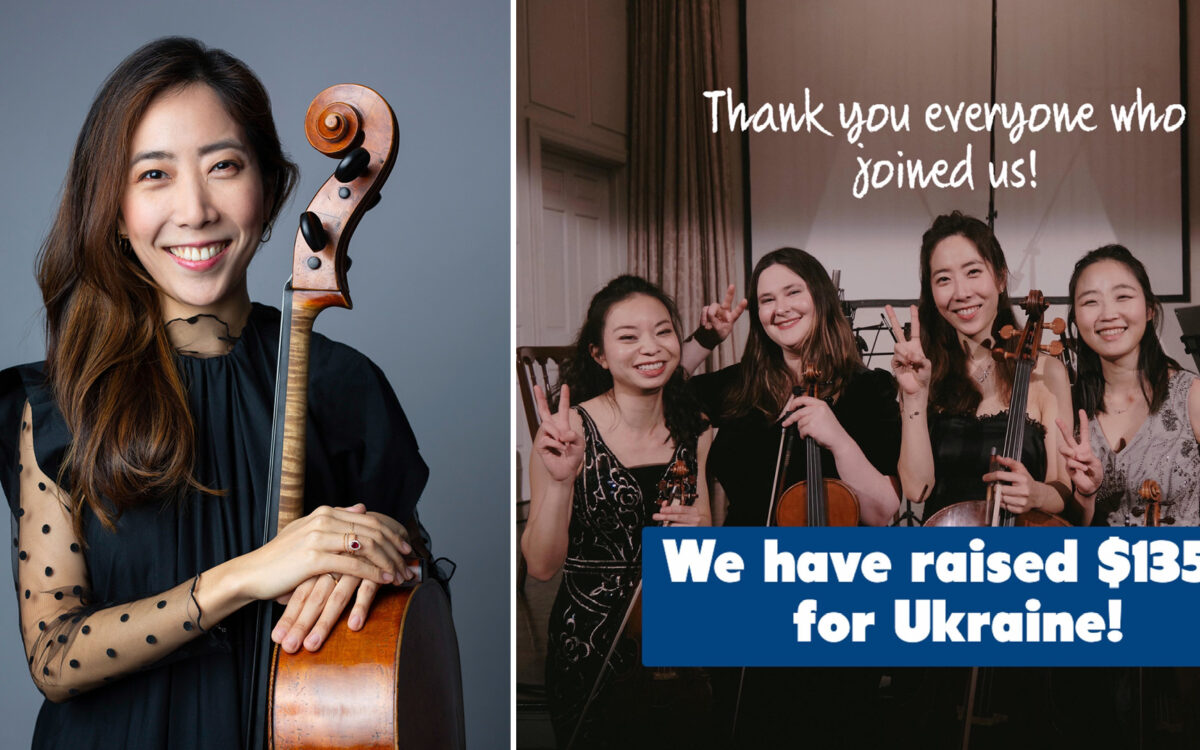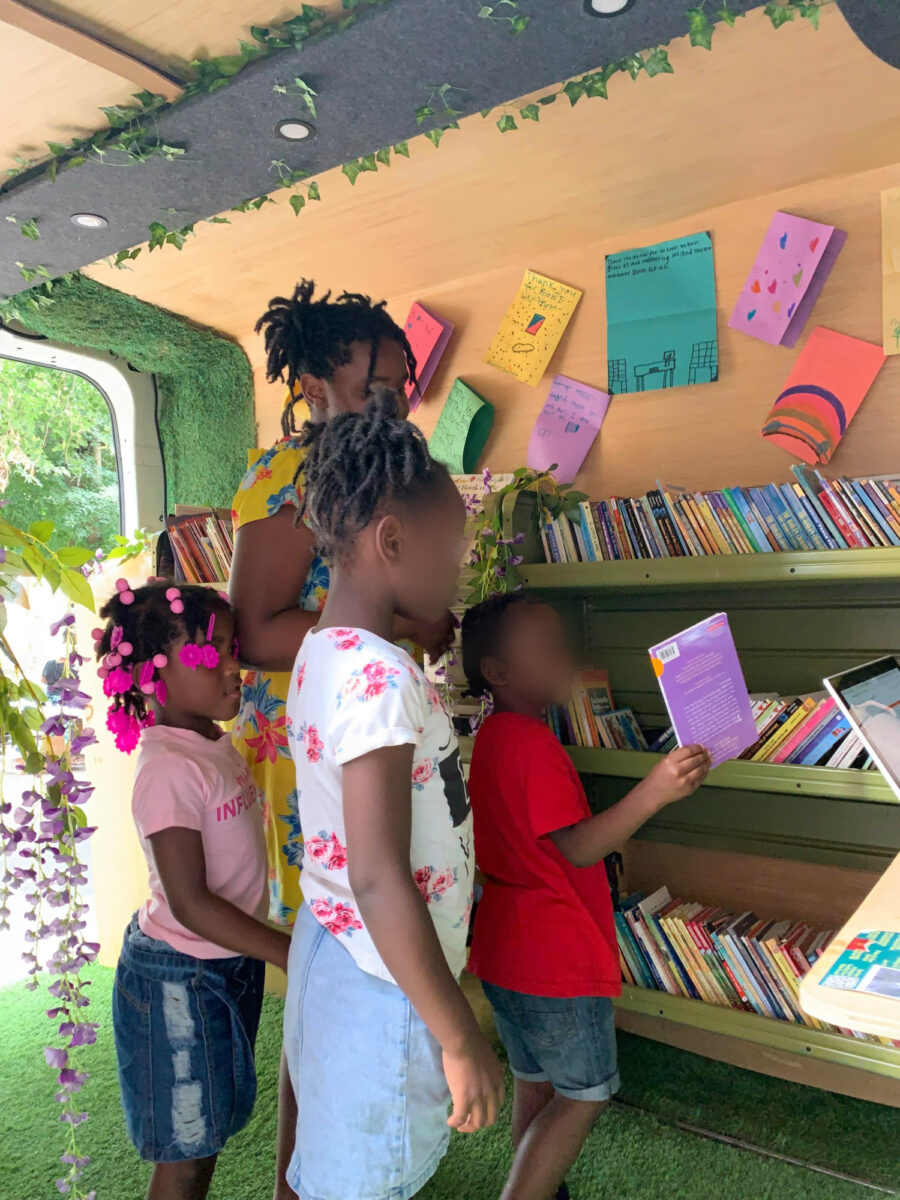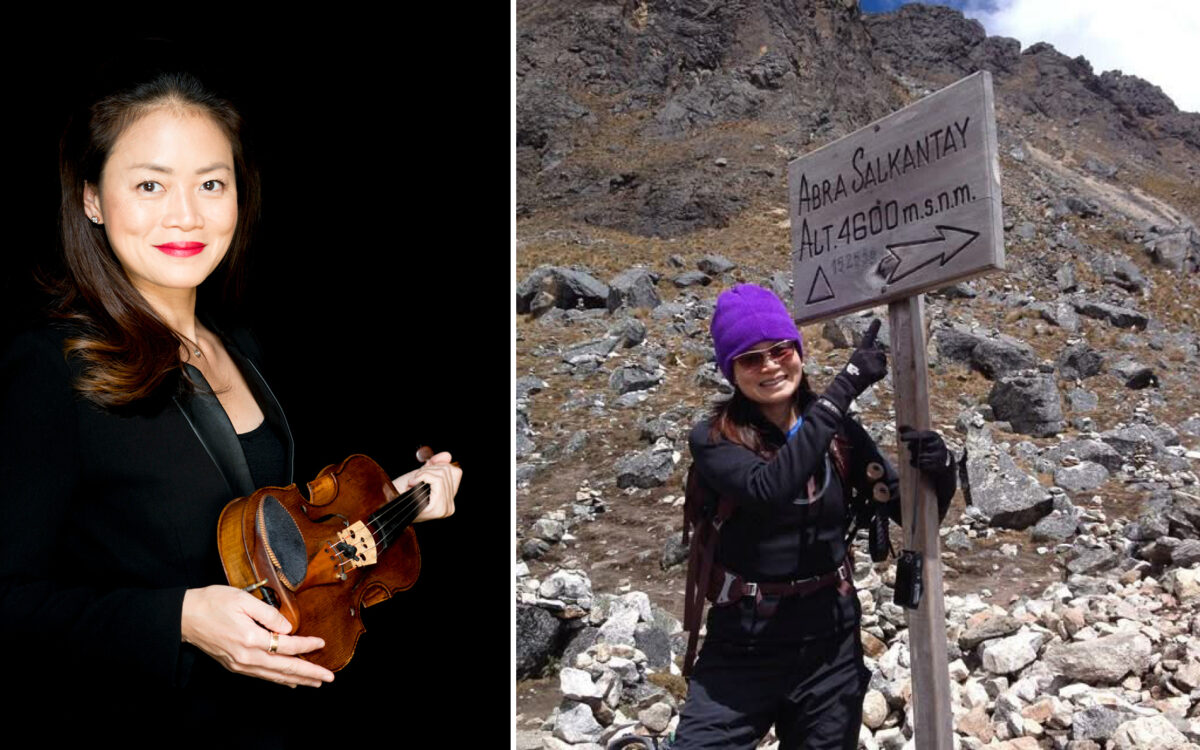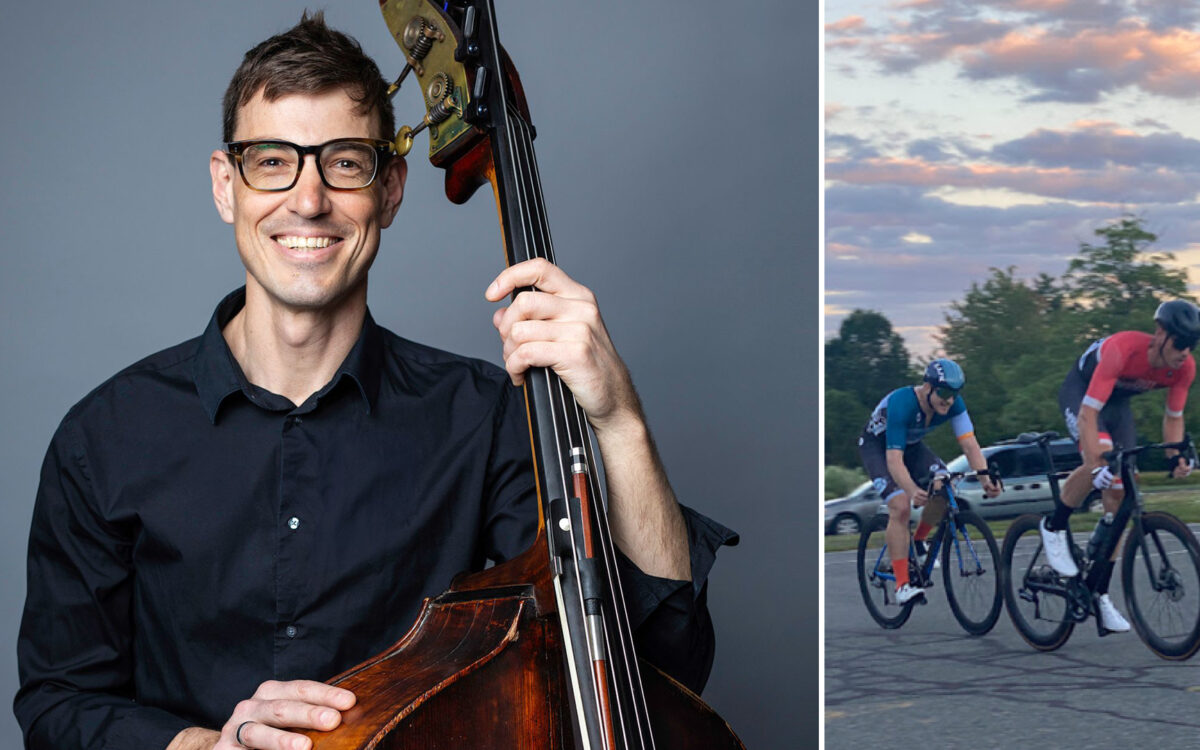From Child Prodigy to Global Changemaker: Christine Lee's Journey of Passion and Purpose

Some musical journeys begin by chance. BSO cellist Christine Lee's began with a simple suggestion: one day as a young child, a music teacher suggested she pick up a cello, and the rest was basically history. Her passion and natural talent with the instrument reshaped her childhood and became a huge motivator for her activism and charity work.
What’s your superhero origin story? How’d you get into cello and why’d you decide to follow that path?
I started playing the cello when I was 7. Before that, I had been playing the piano just for fun. Nobody in my family is a musician, but I think my mother wanted to give me and my older brother the gift of music.
I was a very curious child; I also took singing lessons, ballet, and tried all kinds of things. It was actually my voice teacher who recommended that I study the cello. I don’t know exactly why, but I guess something about my personality or my musical expression pointed towards it.
So, after about two years of piano, I started playing the cello, and my progress was much faster than on the piano. I think it’s natural for a child to become more interested and inspired by something you’re good at. Eventually, I decided to focus on the cello, and all the other extracurricular activities sort of faded away.
So, cello came in and wiped everything else off the map?
Sort of, yeah! After three years of playing, I auditioned at Curtis [Institute of Music] in Philadelphia. At the time, it was really just about practicing for auditions. But then, to my surprise, I got in!
That was my first time in the U.S. I didn’t really know much about the school. I think my parents just wanted to give me the chance to experience a bigger world. I was 10, and of course, there was culture shock. I didn’t speak much English, and back in Korea, I’d been getting a lot of attention. But once I got here, it was like a completely different world. Suddenly, I was a small fish in a very big pond, and I felt pretty lost.
While I was at Curtis, I also attended Friends-Select School, a Quaker school in Philadelphia. The Quaker philosophy is based on values like community, equality, and simplicity, and it was a refreshing contrast to the intense, competitive world of music. At Friends-Select, I found a much-needed balance. I was surrounded by people who valued creativity, intellectual curiosity, and social justice — principles that helped me grow as a person, not just as a musician. The school had a really supportive environment, and I felt encouraged to explore my other interests, even as I was focused on my music.
Through my years there, I made some lasting friendships. I still keep in touch with a few of my friends from high school, some of whom settled in Boston after college. It was a small, tight-knit community, and those friendships became a source of stability during what was a pretty overwhelming time of transition for me.
It wasn’t until I was 18, just before graduating from high school, that I really decided I wanted to pursue music as a career.
The summer before graduation, I had the opportunity to tour Europe, and that experience gave me the inspiration and clarity I needed to know that music was the path I wanted to follow for the rest of my life.
When did activism become part of your life?
When I was at Curtis, we did some fundraising concerts. I had the opportunity to perform for underprivileged neighborhoods in the north of Philadelphia. It was around a holiday, maybe Thanksgiving, and the community was mostly Black. I think most of them had never seen a cello before. It struck me how deep the divide was, even in the same city. I was probably only 15 or 16 at the time, and it stayed with me. I realized I had this incredible gift, but not everyone had access to it.
Curtis gave me the opportunity to truly focus on my craft, developing my technical skills and deepening my musical expression. It wasn’t just about playing the cello perfectly — it was about using that mastery to connect with others. The training I received helped me realize that music could be a powerful tool for bringing people together, for uniting across cultural divides and fostering understanding.
Attending my Quaker school also had a big impact. Every Wednesday, we sat in silence during service, and if you felt inspired, you could speak. From those years, I took away the values of compassion, empathy, and kindness, and I think my experiences with different cultures helped me understand what it feels like to be treated differently.
At first, I believed that music spoke for itself, regardless of language. But as I grew older, I realized I could use it to communicate in ways words couldn’t. After my master’s, in my early twenties, I started thinking more about how I could use this gift to serve others and bring communities together.
You've done some organizing to help communities in Turkey and in Ukraine.
After the earthquake in Turkey in 2023, I organized a concert and raised funds for Turkey. Music, for me, has always been a way to respond to pain, devastation, and the challenges life throws at us. It may not ease the pain, but it helps us get through it. In times of crisis, like the earthquake and the war in Ukraine, I’ve used music to channel those feelings into something positive, to bring people together and raise awareness.
One thing I’m really proud of, especially when I think back to my time in Philadelphia, is how I was able to give back to the community that shaped me. I spent 11 formative years there. During the pandemic, I realized that many kids in underprivileged areas didn’t even have enough money to pay for Wi-Fi. For us, that's something we take for granted.
So, I raised funds to create a mobile library, with help from others, to give these kids access to books. That’s something I find really meaningful. I organize events like this, even if they aren’t directly related to my music. For example, when I lived in Belgium, I also helped organize a coat drive. It’s simple — if you don’t need something and it’s just going to waste, why not give it to someone who can use it?

Lightning round! Do you have a favorite place yet to grab food around Symphony Hall?
I like Tatte. For me, going out is not only about food, it's about sharing the moments together. If the company's good, wherever I go, I can enjoy myself.
Do you have any spots out in the Berkshires yet that are your go-tos?
Not yet, but this summer, I visited Heirloom Lodge and really enjoyed it. I also went to High Lawn Farm on a Thursday, when they have the pizza truck and ice cream. It’s definitely a heavy afternoon, so I’d only recommend it if you can follow it up with a nap.
What is your coffee or tea order?
I like doing both. In the morning, I do coffee and tea. I've been experimenting a little bit with a mushroom coffee company called RYZE. I also love a classic Americano, and pour overs. I'm not a huge cold coffee person, so warm Americano always does the trick.
How about your favorite pizza topping?
I know opinions are divided on this, but I do like Hawaiian pizza. The key is having good cheese and adding spicy honey—it makes all the difference. Honestly, anything with good cheese works for me. I lived in New Haven for a short time and developed a love for clam pizza too.
Maya Shwayder is the BSO’s Senior Contributing Editor and Copywriter.



